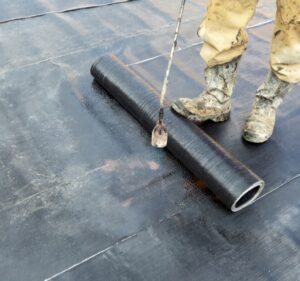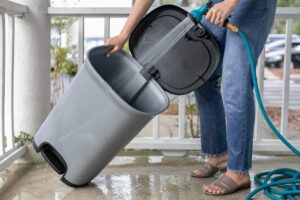Rat infestations are a common issue, particularly in urban areas like Singapore. Homeowners often seek DIY methods to handle these problems, believing they can effectively manage rat and mouse control on their own. This article explores the truths and misconceptions about DIY rat control, providing a professional analysis of its effectiveness.
The Reality of DIY Rat Control
Effectiveness of DIY Methods
Many homeowners believe that simple DIY methods can efficiently control rat infestations. Common solutions include using traps, poison baits, and homemade repellents. While these methods may offer temporary relief, they often fall short of addressing the root of the problem. Rats are highly adaptive creatures, capable of avoiding traps and developing resistance to certain poisons. Furthermore, homemade repellents lack scientific validation and may not have any significant impact on rat populations. DIY methods typically address the symptoms of an infestation without eliminating the source, leading to recurring issues.
Health and Safety Concerns
Another critical consideration is the health and safety risks associated with DIY rat control. Handling rat poison without proper knowledge and precautions can pose severe hazards to both humans and pets. Poisonous substances, if misapplied, can contaminate the home environment, leading to accidental ingestion or exposure. Additionally, dealing with dead or dying rats can expose individuals to diseases such as leptospirosis and hantavirus. Professional pest control services are equipped with the necessary tools and expertise to handle these risks safely, ensuring a secure environment for residents.
Common DIY Myths and Misconceptions
Myth 1: Rats Are Easy to Trap
One of the most pervasive myths is that rats are easily caught using standard traps. In reality, rats are intelligent and cautious animals. They can recognise and avoid poorly placed traps. Moreover, rats can reproduce rapidly, so even if a few are caught, the population can quickly rebound if the underlying issue isn’t addressed. Professional pest control experts understand rat behaviour and can strategically place traps to maximise effectiveness, significantly reducing the population.
Myth 2: Homemade Repellents Are Effective
Homemade repellents, such as peppermint oil and ultrasonic devices, are often touted as effective rat deterrents. However, there is little scientific evidence to support their efficacy. Rats may be deterred by strong scents or sounds initially, but they quickly become accustomed to these stimuli. Relying solely on homemade repellents can give a false sense of security, allowing the infestation to worsen over time. Professional pest control services use scientifically proven methods to ensure long-term rat and mouse control.
Myth 3: Poison is the Best Solution
While poison can kill rats, it is not always the best solution for several reasons. Rats can develop resistance to certain poisons, rendering them ineffective. Additionally, poison can pose significant risks to other wildlife, pets, and even humans if not used correctly. There is also the issue of dead rats decomposing in hard-to-reach places, creating foul odours and attracting other pests. Professionals use integrated pest management strategies that combine various techniques to effectively and safely manage rat infestations.
The Professional Approach to Rat Infestation in Singapore
Comprehensive Assessment
Professional pest control services begin with a thorough assessment of the property to identify the extent of the infestation and the factors contributing to it. It includes inspecting for entry points, nesting sites, and food sources. By understanding the specific dynamics of the infestation, professionals can develop a targeted treatment plan that addresses both the symptoms and the root causes.
Integrated Pest Management (IPM)
Integrated Pest Management (IPM) is a holistic approach that combines multiple strategies to achieve long-term rat and mouse control. It includes sanitation measures, habitat modification, exclusion techniques, and targeted use of traps and baits. IPM focuses on preventing infestations by making the environment less conducive to rats, rather than relying solely on reactive measures. This comprehensive approach is essential for effectively managing rat infestations in Singapore.
Ongoing Monitoring and Maintenance
Effective rat control requires ongoing monitoring and maintenance to ensure that the problem does not recur. Professional pest control services offer regular inspections and treatments to keep rat populations under control. They also provide valuable advice on preventive measures homeowners can take to minimise the risk of future infestations. This proactive approach ensures a safer and more hygienic living environment.
Conclusion
While DIY rat control methods may seem cost-effective and convenient, they often fail to provide long-term solutions to rat infestations. The risks associated with handling poisons and the limitations of homemade repellents underscore the importance of professional intervention. In Singapore, where rat infestations can quickly escalate, relying on professional pest control services ensures comprehensive and effective management. By separating fact from fiction, homeowners can make informed decisions to protect their homes and health.
Contact Kingpin Solutions now and let us help you reclaim your home.












+ There are no comments
Add yours